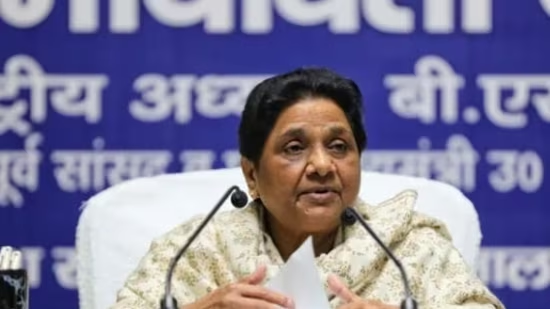New Delhi Jul 12,: Mayawati Welcome Move Bahujan Samaj Party (BSP) National President and former Chief Minister of Uttar Pradesh welcomed the decision of Vice Chancellor of Delhi University to scrap proposal for inclusion ‘Manusmriti’ book in Law Faculty. She said strong opposition to this proposal was anticipated and she welcomed the withdrawal.
Reflection of teaching Manusmriti in Delhi University’s Law Department is opposed to the honour and dignity, egalitarianism, welfare goals guaranteed by Indian Constitution are obvious. This is good news that the decision on cancelation of this proposal has been taken,” Mayawati said in a post social media platform X.
Opposition to Ambedkar’s vision
Accusing Congress, BJP and RSS of trying to include Manusmriti in the education curriculum; Mayawati said that it is not possible at all when being reminded by newsmen: Dr. Bhimrao Ambedkar did not have written Indian Constitution as per ‘Manushti’ or religious Shastras hence comments will be wrong here(Chikitsat)
“Dr. Bhimrao Ambedkar crafted the Indian Constitution with the self-respect of marginalized people and women, humanism, and secularism at its core, which does not match Manusmriti at all. Any such attempt is inappropriate,” she stated.
Proposal
The proposal to include Manusmriti, an ancient Hindu legal text, in Delhi University’s Law Faculty curriculum sparked significant controversy. Critics argued that the text conflicts with modern constitutional values of equality and justice, leading to the Vice Chancellor’s decision to reject the proposal, a move seen as a victory for constitutional values in higher education.
Impact on Curriculum Decisions
Rejecting Manusmriti from the syllabus emphasizes the university’s commitment to constitutional principles. It also sparks a broader discussion on the relevance of ancient texts in contemporary legal education. This decision is expected to influence future curriculum choices, ensuring they align with constitutional values.
Delhi University Vice-Chancellor,
Prof. Yogesh Singh, announced the rejection of the proposal to include ‘Manusmriti’ in the LLB curriculum, belonging to the Dharmastra literary tradition of Hinduism.
Government’s Stance
Union Education Minister Dharmendra Pradhan affirmed the government’s commitment to upholding the Constitution’s spirit, stating, “Our educational institutions must reflect the values of equality and justice that form the foundation of our nation.”
Future Implications
Delhi University’s decision may set a precedent for other institutions facing similar issues. It is likely to prompt further discussions on balancing the inclusion of historical texts with maintaining a curriculum that promotes constitutional values and modern legal principles.
The rejection of ‘Manusmriti’ from the Law Faculty syllabus at Delhi University has been widely praised for reinforcing constitutional values in higher education. This decision highlights the ongoing need to evaluate educational content through the lens of modern principles and the foundational ideals of the Indian Constitution. Union Education Minister’s affirmation of this commitment underscores the government’s alignment with this decision.




